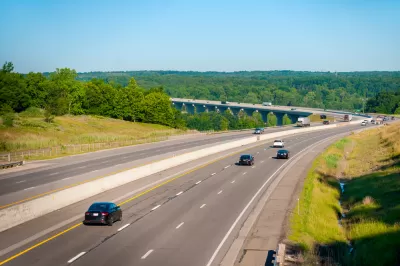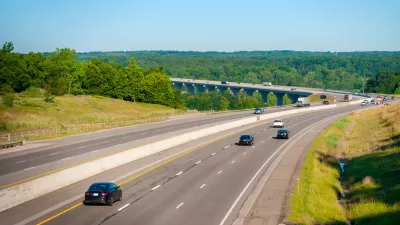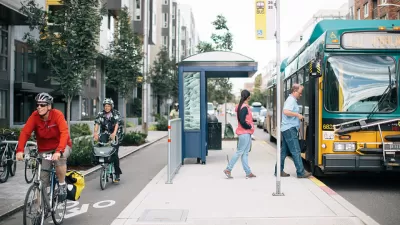The Northeast Ohio Areawide Coordinating Agency (NOACA) is moving forward with a groundbreaking policy to consider regional economic inequities when evaluating potential highway projects.

"A committee of the Northeast Ohio Areawide Coordinating Agency on Friday approved a new draft policy that would for the first time make racial and economic equity part of how it determines whether to approve new highway interchanges," reports Steven Litt.
The committee's decision to advance the new draft policy updates a story first shared by Planetizen in July.
Litt says that Northeast Ohio Areawide Coordinating Agency's (NOACA) full, 46-member board of directors "should approve the policy at its next meeting in December."
Grace Gallucci, executive director of NOACA is quoted in the article touting the policy's new approach to regional planning in Northeast Ohio. The goal of the policy is to "assess as much as we can the localized impact and the regional impact [of proposed interchanges], and to bring the board of NOACA the information so they can make a more informed decision," says Gallucci.
Litt's coverage also includes a list of the projects that would be subject to the new policy. NOACA's ability to veto projects would now be informed by newly detailed quantitative criteria for evaluating interchange projects like those listed in the article.
"New criteria would include detailed cost-benefit analysis of regional impacts on municipal budgets, economic development, environmental protection, quality of life, transit and bike use, and racial equity — both in communities receiving a new interchange and in adjacent and more distant communities," according to Litt.
FULL STORY: NOACA committee recommends policy to evaluate highway interchange proposals on racial, economic equity

Rethinking Redlining
For decades we have blamed 100-year-old maps for the patterns of spatial racial inequity that persist in American cities today. An esteemed researcher says: we’ve got it all wrong.

Planetizen Federal Action Tracker
A weekly monitor of how Trump’s orders and actions are impacting planners and planning in America.

Walmart Announces Nationwide EV Charging Network
The company plans to install electric car chargers at most of its stores by 2030.

New State Study Suggests Homelessness Far Undercounted in New Mexico
An analysis of hospital visit records provided a more accurate count than the annual point-in-time count used by most agencies.

Michigan Bills Would Stiffen Penalties for Deadly Crashes
Proposed state legislation would close a ‘legal gap’ that lets drivers who kill get away with few repercussions.

Report: Bus Ridership Back to 86 Percent of Pre-Covid Levels
Transit ridership around the country was up by 85 percent in all modes in 2024.
Urban Design for Planners 1: Software Tools
This six-course series explores essential urban design concepts using open source software and equips planners with the tools they need to participate fully in the urban design process.
Planning for Universal Design
Learn the tools for implementing Universal Design in planning regulations.
City of Moorpark
City of Tustin
City of Camden Redevelopment Agency
City of Astoria
Transportation Research & Education Center (TREC) at Portland State University
Regional Transportation Commission of Southern Nevada
Toledo-Lucas County Plan Commissions





























